
Wash your hands the right way
The number one way to stay germ-free, according to doctors? Become a serial hand-washer. “It is important to wash hands regularly with soap and water,” says family physician Jennifer Caudle, DO, especially before eating or preparing food and after caring for a sick person. But it’s not enough to do a quick rinse: You have to wash them properly to really get rid of microbes that can make you sick. According to the CDC, wet your hands and lather up, scrub all over your hands including the backs and in between your fingers for 20 seconds (sing “Happy Birthday” twice), rinse, and dry well.
Here are 13 things you didn’t know about germs.

Change your greeting
If you don’t want to have to switch your email greeting to an automatic “out of the office due to sickness” reply, change up your in-person greeting instead. “Hands are a common way that viruses and bacteria are spread, so avoiding shaking hands can be a good strategy for prevention of colds and flu,” says Dr. Caudle. How can you do this without looking like a germaphobe? “There are many ways to greet others if you choose to avoid shaking hands: a wave, fist-bump, or even a peace sign are great ways to do this,” Dr. Caudle suggests.
If you do get sick, try these eight healing foods.

Don’t stay up late
You might be tempted to watch just one more episode of that binge-worthy Netflix show, but resist the urge and head to bed to keep your immune system strong. “Chronic sleep loss decreases your immune system’s production of cytokines, which are necessary to fight infection and inflammation,” says sleep expert Richard Shane, PhD, creator of the Sleep Easily method. “Conversely, when you sleep well, your immune system produces more cytokines that help your body resist colds, flu, and infections.” In studies in which researchers expose people to the common cold virus, those with insufficient sleep are more likely to get sick, he says.
Check out these four things to fine-tune your immune system.
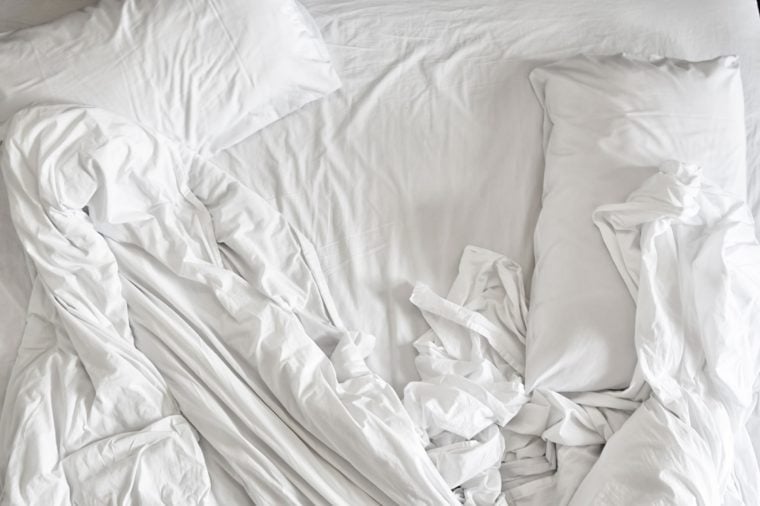
Regulate your sleep cycle
Sleep hygiene, which can help keep you healthy, isn’t just about the quantity of sleep—it’s about the quality, too. As much as possible, keep your sleep/wake cycle the same every day to maintain your circadian rhythms, as research indicates this can boost immunity. “Having your bedtime and wake time be fairly consistent can help you sleep better, which can help you stay healthy,” Dr. Shane says. Keep your room dark and cool, forego electronic devices before bed, and waken gradually with a room-brightening alarm clock.
These healthy habits can help you achieve a deeper, more restful sleep.
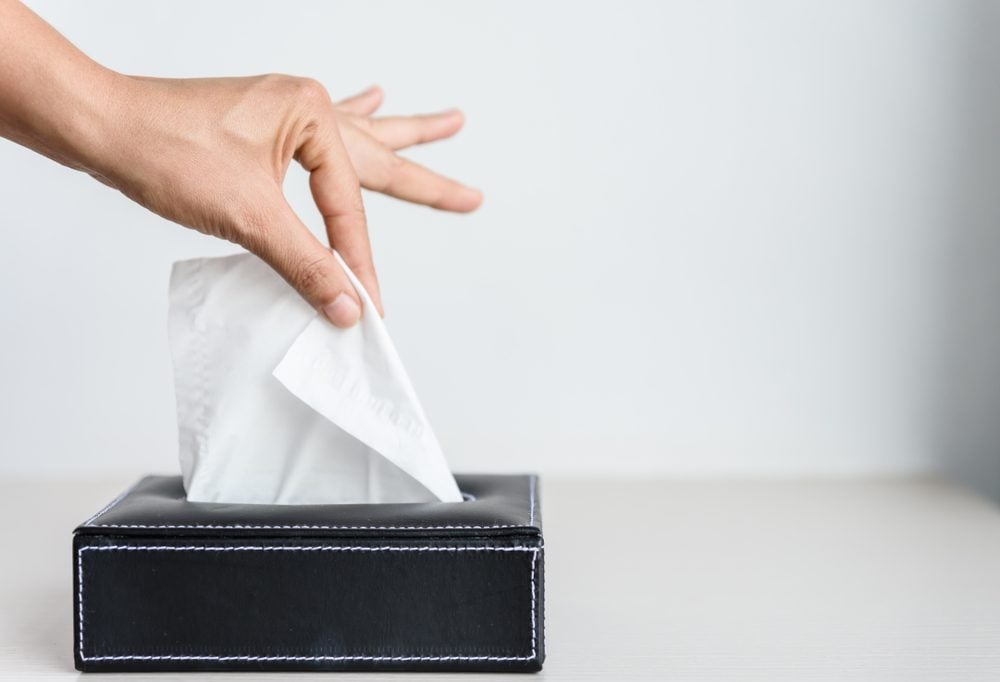
Protect your hands with a tissue
You used to be told to cover your nose and mouth when you sneeze or cough, but now the advice is a little more specific. “Covering your mouth is still very important, but it is more important to think about how we cover our mouth,” Dr. Caudle says. “Covering our mouth with our hands could end up exposing our hands to germs, and these germs could then be spread if we touch objects or other people with this same hand. So, use a tissue to cover our mouth and nose.”
Don’t miss these 10 steps to outsmarting cold and flu season.
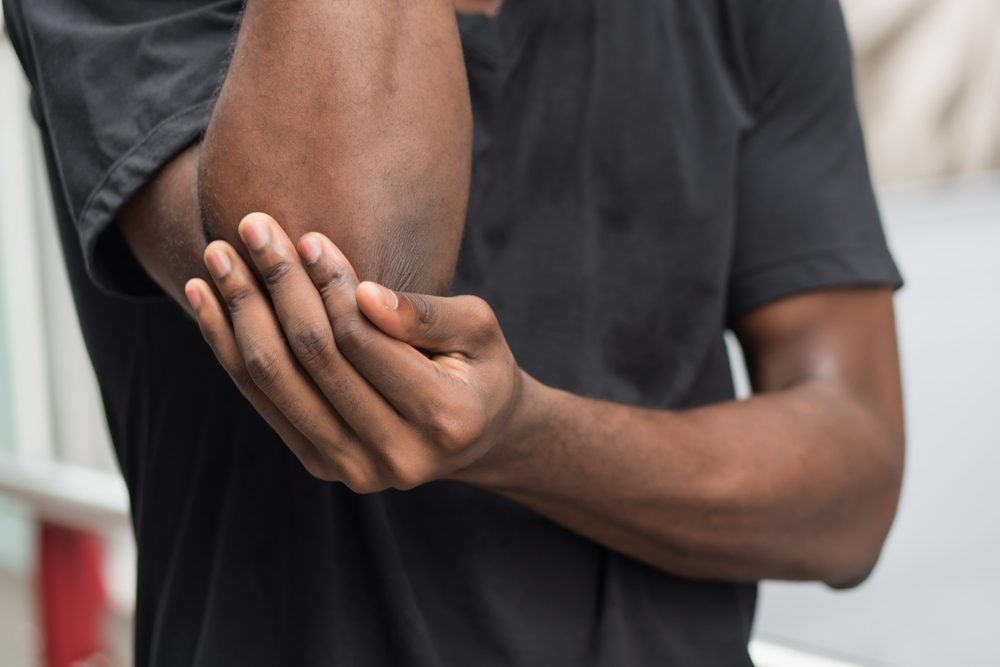
Or, use your elbow
Additional advice from the CDC says if you don’t have a tissue, don’t use your hands at all to cover your mouth. “Another one of the best ways to cover our mouth is to cough or sneeze into our elbow,” Dr. Caudle says. “This technique allows us to prevent the spread of viruses and bacteria into the air, but also prevents us from getting viruses and bacteria on our hands which could allow them to be spread with touch.” Although this actually protects others from catching a cold rather than yourself, if everyone did it we’d all be less likely to get sick.
Read about more things you didn’t know about the common cold.

Don’t touch public surfaces
You can’t live in a bubble, but you can take certain measures to prevent exposure to public surfaces that harbour lots of germs. Then, beware: “Our hands can be covered in germs from others based on everyday interactions with our environment, such as opening doors in public or using shared resources at work, and our hands serve as transportation for these germs to hop between people,” says J.D. Zipkin, MD, associate medical director of Northwell Health—GoHealth Urgent Care. What are some ways to avoid this transference to yourself? “Consider pushing an elevator button with a knuckle instead of a fingertip, and look for opportunities to open swinging doors with a foot, elbow, or shoulder,” he says. In general, if you can avoid touching something with your hands, do it.

Your pen is mightier
Even in the digital age, think about how many times you have to use a shared pen to sign forms or papers while out in public. “There is a balance when it comes to coming in contact with public surfaces—the key is to be mindful of your environment instead of avoiding it altogether,” Dr. Zipkin says. An easy way to do this? Carry your own pen. And if you’re a teacher, follow this tip from the National Education Association: Don’t use your students’ pencils—bring your own around the classroom.
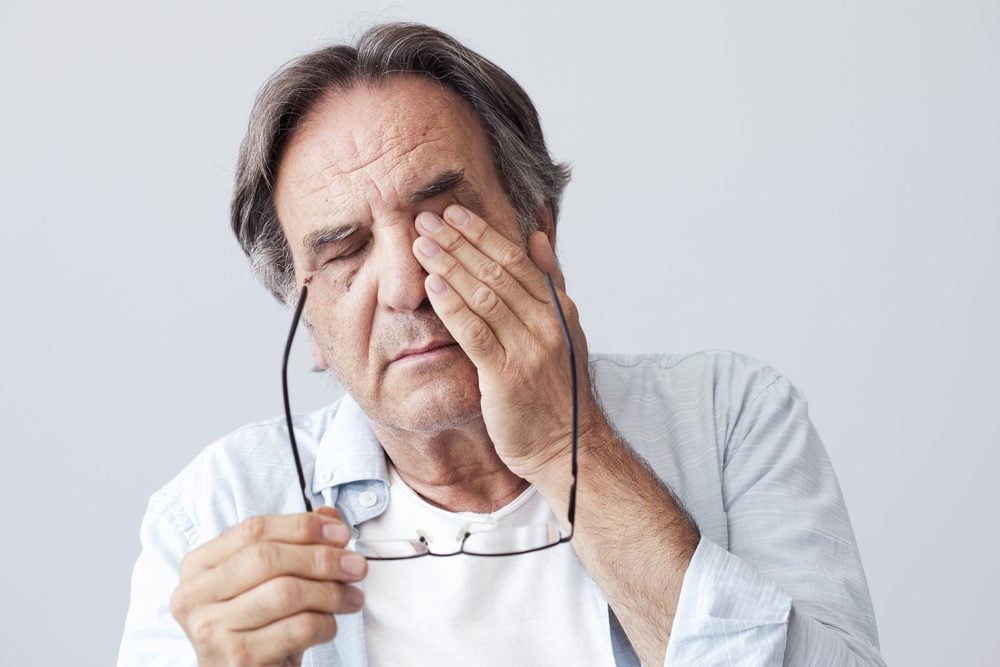
Stop touching your face
The reason germs on your hands are so dangerous is because chances are, at some point, your hands will end up on your face. “Our eyes, nose, and mouth are vulnerable to attack from many common cold viruses and influenza,” says Dr. Zipkin. “Unfortunately in the winter, cold temperatures can cause mild runny noses, which can increase the chance that we do touch our faces.” Even with all the hand washing you’re doing, take extra precautions by not biting nails or even picking your nose! But beware, face-touching is hard to avoid. “It is natural for all of us to touch our faces frequently throughout the day, whether we are rubbing our eyes, have an itch, eating, or moving our hair,” Dr. Zipkin says. “As a physician, it has taken me years to train my hands to avoid touching my face while I’m at work.”
On the other hand, here are six body parts you can stop cleaning so often.
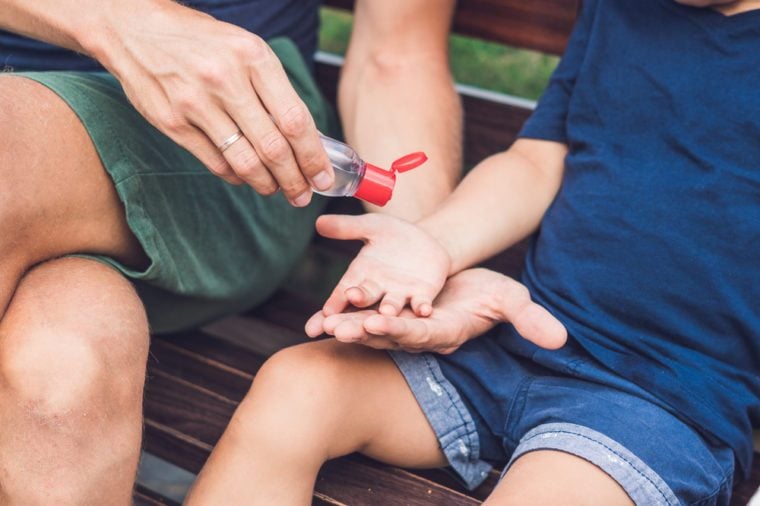
Sanitize
Although hand-washing remains the gold standard for removing any germs we did pick up from our hands, a close second is alcohol-based hand sanitizer. Make it sure it contains at least 60 per cent alcohol, says the CDC, and don’t wipe it off before it’s dried. Whatever cleansing method is available, “it is important to wash your hands with soap and warm water or a hand sanitizer after coming in contact with shared public surfaces, especially before eating,” Dr. Zipkin says.

Exercise
Among the many reasons to get your exercise (30 to 60 minutes per day of moderate-intensity movement such as walking or biking) is that it gives your body an immune boost. Research has consistently shown that getting a move on is linked with fewer colds—one study reported a 43 per cent reduction in those who exercised most from those who exercised least. “White blood cells, which help to fight against infection, can increase and circulate more rapidly with exercise, which may offer another layer of protection against infection,” says fitness expert and registered dietitian Erin Palinski-Wade, RD, author of the 2 Day Diabetes Diet.
Walking 10,000 steps a day? Here’s what’s happening to your body.

But don’t exercise too hard
However, you don’t want to overdo it when it comes to exercise, because that may actually weaken your body’s defenses against colds. “Extreme exercise can cause an elevation in stress hormones and may potentially decrease resistance against infection,” Palinski-Wade says. Research, which has mainly been done in elite athletes, is still ongoing; but it does make sense to respect your body’s limits, and be sure to build in recovery days if you are training for an endurance sport such as a marathon.

Get rid of germs at the gym
Speaking of exercise, if you go to a gym to work out you may be exposing yourself to all kinds of nasty bugs. Especially during cold season, take measures to protect yourself by practicing good gym hygiene. “Bring your own towel and practice wiping down all equipment before using it,” Palinski-Wade says. “Wash your hands directly after exercise, and make it a practice to change after your workout into clean clothes to lessen your potential exposure to viruses and bacteria.” And if you’re feeling under the weather, stay home to avoid spreading germs to others at the gym as well.
These 13 insider tips will help you get the most out of your gym membership.

Avoid the crowds
You might be tempted to rush out for early morning Black Friday shopping, but perhaps you should wait for Cyber Monday instead. Crowded indoor areas are actually one of the main reasons we get sick in the winter when most people don’t want to be outside in the cold. “The increase in upper respiratory infections during the fall and winter months was likely attributable to the fact that we tend to stay indoors more often during that time, which put us in close contact with sick individuals both directly, and also via recirculated air and [germ-carrying objects] around the house and office,” says Albert Ahn, MD, an internal medicine specialist at NYU Langone Trinity Center.

Go outside, but wear a scarf
So if you’re looking to avoid the germy gym or the crowded mall, there’s no reason not to get outside in the cold—although take protection against an old wive’s tale that may actually have some truth to it. “There has been some recent evidence suggesting that rhinoviruses, one of the most common causes of the cold, are spread more easily in the colder temperatures, indicating that being out in the cold could increase one’s risk for developing a simple cold,” Dr. Ahn says. These germs also replicate best in the body when you’re just below your normal temp of 98.6, he says. “This doesn’t mean one should avoid going outside during this time, but covering the mouth and nose and keeping them warm may help prevent a cold,” Dr. Ahn says. In other words, go outside, but bundle up.
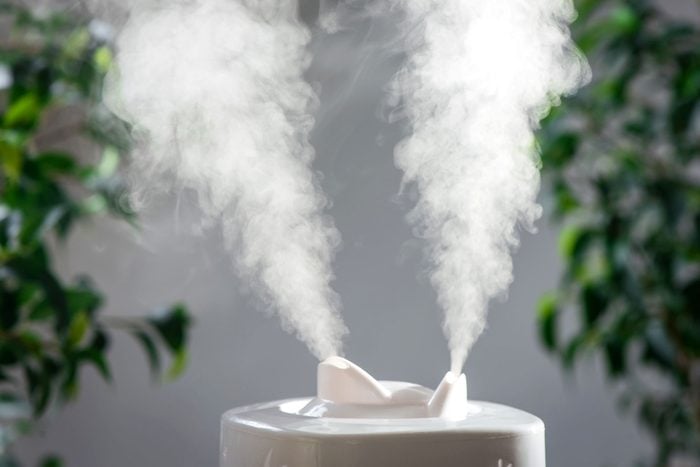
Moisturize dry air
Because dry winter air may have something to do with how easily we get sick, up the moisture level of indoor air with a humidifier. “Can humidifying air prevent colds? The short answer would seem to be yes,” Dr. Ahn says. “Healthy mucous membranes are naturally moist and hydrated and help act as an initial barrier to pathogens. Cold, wintry air can lead to drying out of these membranes and increase the likelihood of infection.” Also, although it can be tempting to turn up the heat, that doesn’t actually add any moisture to the air, so keep your home comfortable but not too hot.
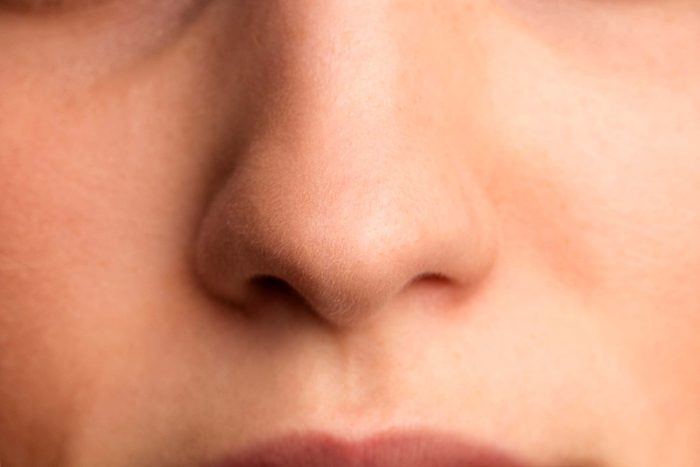
Keep your nasal passages healthy
In addition, you can add moisture to your nose itself. Dry air “causes small cracks or breaks in this [mucous membrane] barrier, allowing the viruses to more easily invade the body,” Dr. Ahn says. “This can be prevented by using nasal saline drops to re-hydrate the nasal passages.” Although research has been mixed, some studies show it to be effective at reducing colds—plus, as a natural remedy with no side effects that can be used safely for all ages, it’s worth a shot.
Find out the everyday medication mistakes that could make you sick.
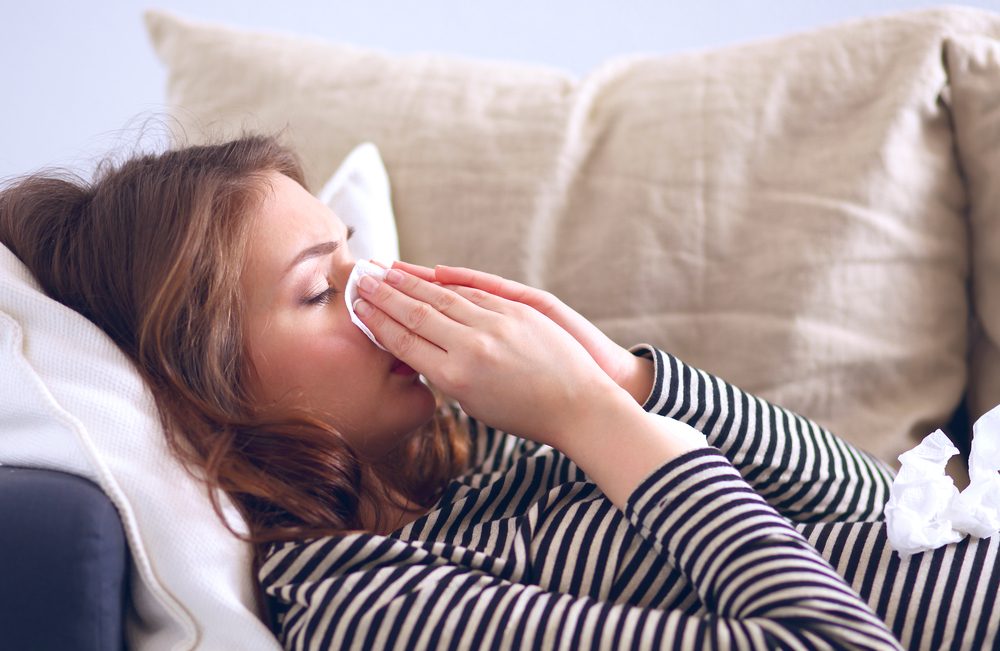
Don’t reuse tissues
We get it—you only blew your nose a little, and there’s so much tissue left. You’re trying to save trees, right? Unfortunately for the environment, it’s best not to leave your dirty tissues lying around, even if you think you can reuse them later. “Throw them away!” Dr. Caudle says emphatically, a sentiment echoed by the CDC. While they might not reinfect you (you can only get sick from the same virus once), they can make others in your home or office sick—and you wouldn’t want to catch a cold by exposure to someone else’s dirty tissues, right? To be more environmentally friendly, you can switch to bamboo tissue, as bamboo is fast-growing and more sustainable.

Stand back
Beware of close talkers and anyone who’s coughing or sneezing—droplets from mucous can spread across the room. So how far can snot go exactly? Some research has found up to six feet, but it’s complicated. “The answer to this question is multifaceted and depends on a number of factors—how fast a cough or a sneeze is travelling will matter, as will the type of virus the person has,” Dr. Caudle says. Although exact estimates vary, researchers from MIT found that droplets can travel farther than previously thought. Your best bet is to stay far, far away from anyone who appears sick, and try not to breathe in if they cough or sneeze in front of you.
Check out the scientific explanations behind quirky body reactions.
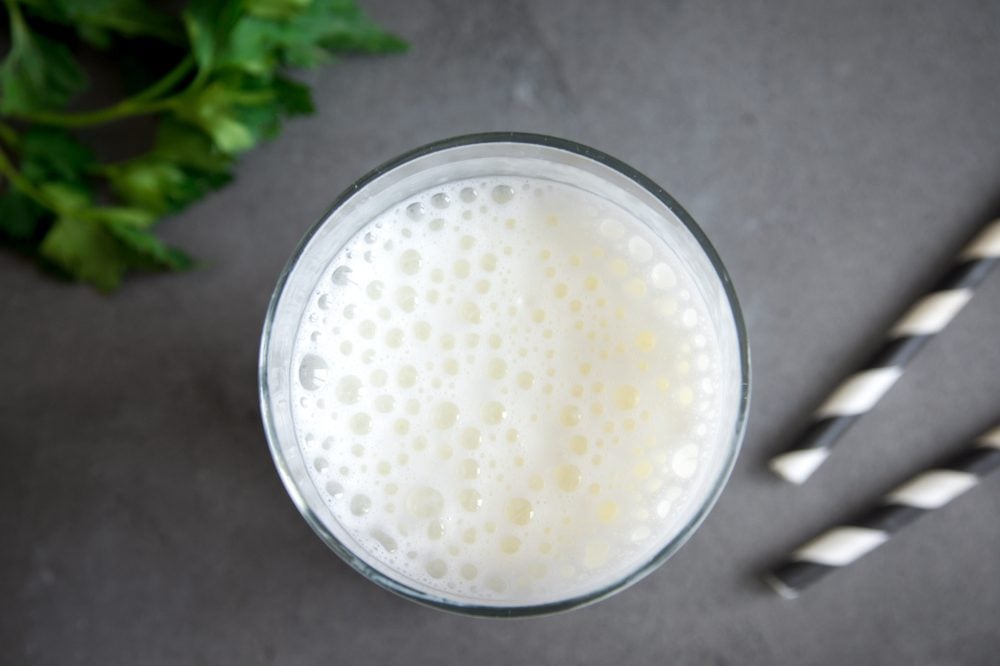
Take your probiotics
More and more research is coming out about the importance of the gut microbiome (the good bacteria in your digestive tract) for immune health and fighting off colds. “About 80 per cent of our immune system comes from the gut, so making sure to keep a healthy balance of good bacteria in the gut is key during cold and flu season,” Palinski-Wade says. “The gut contains hundreds of strains of good bacteria, so when choosing a probiotic, choose one that contains strains that have been shown to support immune health. For instance, the Bifidobacterium lactis group of probiotics has been found to improve immune function and may be one of the best choices during cold and flu season.” You can also get probiotics from your diet in foods like yogurt and kefir.
Check out these easy ways to improve your gut health.
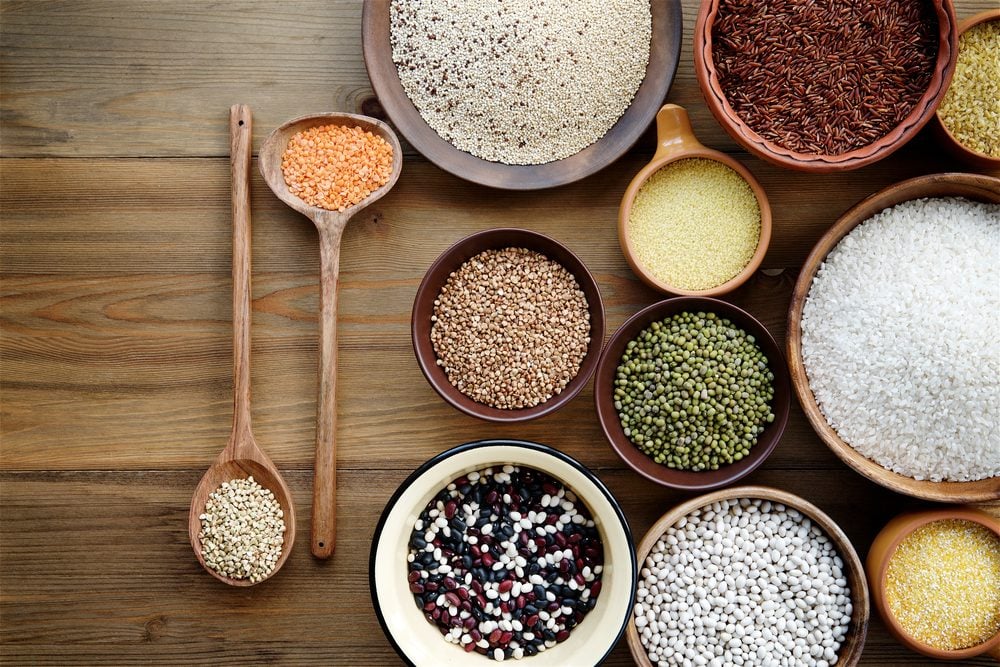
Also, take your prebiotics
Research is looking into the role of prebiotics as well as probiotics in immune health. “A diet rich in fibre from a variety of plant-based sources can help provide prebiotics—the food the good bacteria in your gut needs,” Palinski-Wade says. So if you feed your gut bacteria well, the theory is they’ll be healthier, and in turn, you will, too. “Aim for at least 25 to 38 grams of fibre per day,” she says. Good sources of prebiotic fibre include prunes (three grams of fibre per serving), and beans and legumes (about eight grams of fibre per serving).
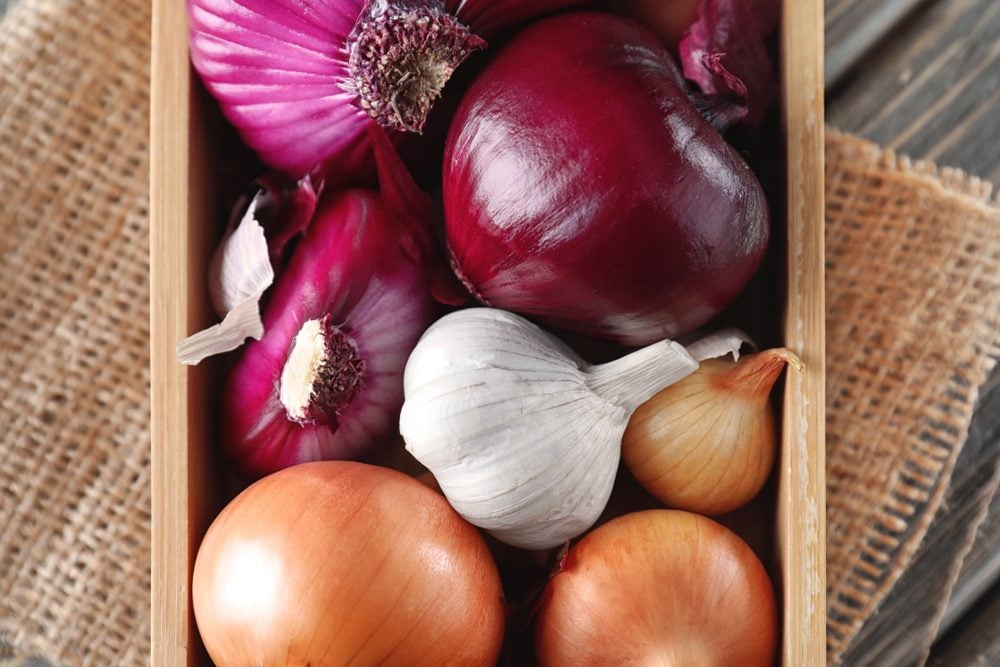
Cook with onion
Onions are also a great source of prebiotic fibre, and also have additional benefits which may enhance your body’s ability to fight colds. “Onions may help to boost the immune system by increasing nitric oxide production in cells,” Palinski-Wade says. Nitric oxide is a chemical compound that research shows is involved in many different systems in the body—protecting your heart in addition to your immunity. But you have to ingest the onions to get the benefit—don’t fall prey to the old wives’ tale of placing cut onions around the room.
Onions are also one of the most effective anti-inflammatory foods.

Cut back on wine
According to the National Institutes of Health (NIH), drinking too much alcohol on a regular basis can suppress your immune system, making you more vulnerable to sickness. Research shows even one bout of binge-drinking can slow your body’s ability to ward off infections. In addition, alcohol can affect your chances of sickness in other ways. “Alcohol can impact your natural sleep cycle and cause interrupted sleep,” Palinski-Wade says. “When sleep is impaired, your immune response can weaken and risk of infection can also increase.”
Do you know these six binge-drinking warning signs?
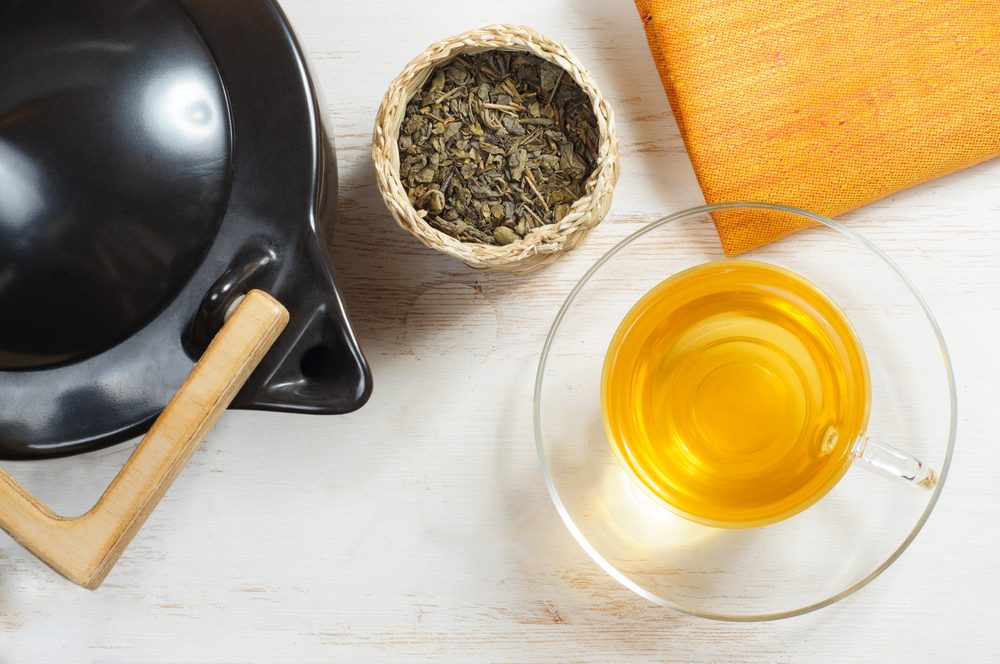
Go green
Try replacing that glass of wine with a comforting cup of green tea. “Tea, especially green tea, is rich in antioxidants that can aid the immune system and protect against colds,” Palinski-Wade says. “The six main antioxidants in green tea have each been found to help block different phases of infection in cells from a virus, which may weaken the virus and reduce the risk of infection.” One study found green tea may also help to reduce the duration of a cold or flu by as much as two days, she says. Not a tea drinker? “Hot beverages [in general] may offer benefits since the warm temperature can open nasal passages and promote healthy mucous function,” Palinski-Wade says.
Read about more health benefits of green tea.
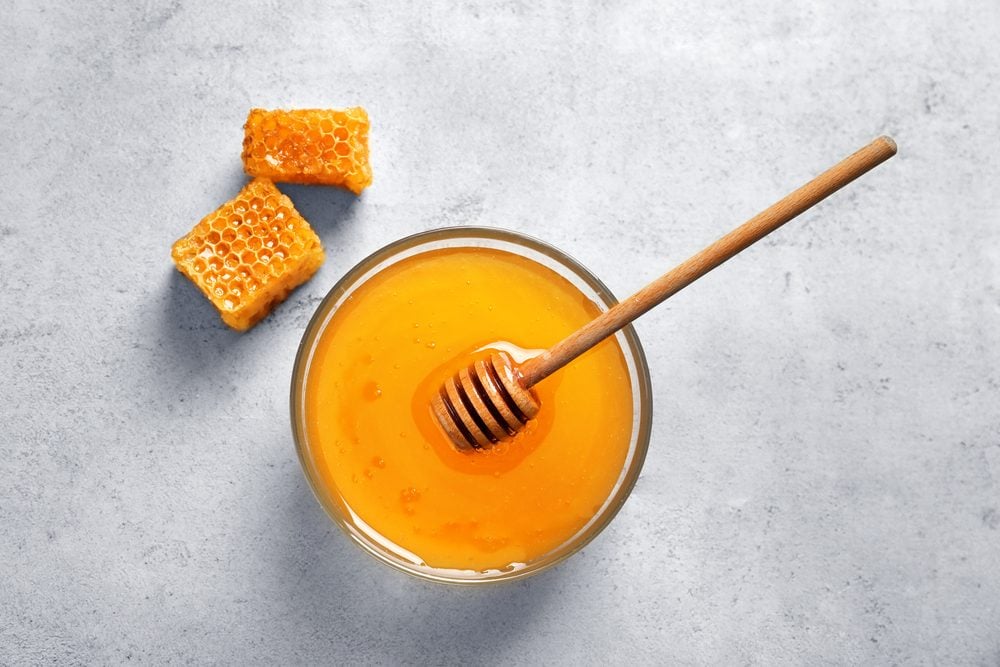
Take it with honey
You can make a soothing cup of tea potentially even more protective against cold symptoms by adding some honey. “Honey can act as a cough suppressant, and research has found honey may suppress coughs better than standard cough medicine while improving sleep,” Palinski-Wade says. Studies have also found honey to have antibacterial properties, which won’t ward off the common cold (a virus) but can prevent strep throat. In addition, “honey can help to protect against complications that can arise from a cold, such as ear infections,” Palinski-Wade says. Just don’t give honey to children under one because of a risk of botulism.
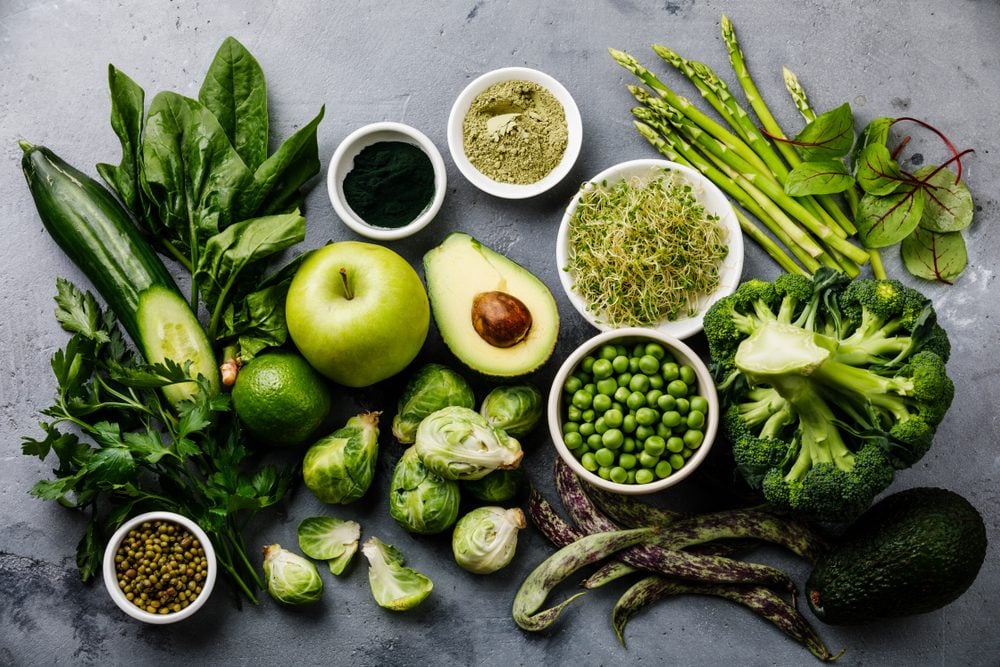
Eat your veggies
It’s no surprise that vegetables are good for you—and they can give your immune system a boost. “A diet rich in antioxidants can be protective during cold and flu season as it supports immune health, and since vegetables are rich in many antioxidants, including vitamin A and vitamin C, consuming a diet rich in vegetables may provide added protection against colds and flu,” Palinski-Wade says. In addition, antioxidant plant compounds called flavonoids, found in brightly coloured fruits and veggies, have been shown in studies to reduce the risk of colds.
Are you getting enough of these 13 essential vitamins your body needs to stay healthy?
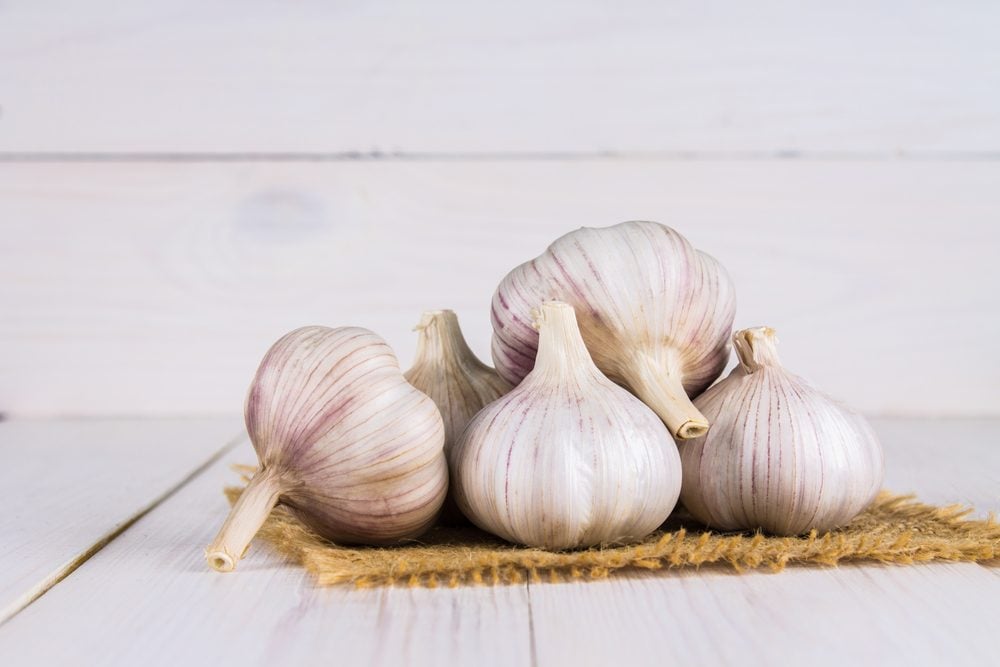
Get garlic breath
Make like you’re warding off vampires by embracing the benefits of garlic. “The compound allicin found in garlic helps to boost the immune system to fight against infection,” Palinski-Wade says. “Taking supplemental garlic has been found to reduce infection from colds, as well as reduce the duration of colds.” More studies are needed to verify this finding, but there’s no doubt garlic is a healthy addition to your cold and flu-season meals. (Talk to your doctor before starting a garlic supplement, though.)

Nosh on protein
It’s important to get protein to keep your body strong against viral infections. “Protein is needed to build and repair body cells, including white blood cells which fight off infections,” Palinski-Wade says. “A diet deficient in protein may weaken the immune system.” But, don’t go overboard on meat: Palinski-Wade says most people already consume more dietary protein than needed.
This is the per cent of vegetarians and vegans that go back to meat.
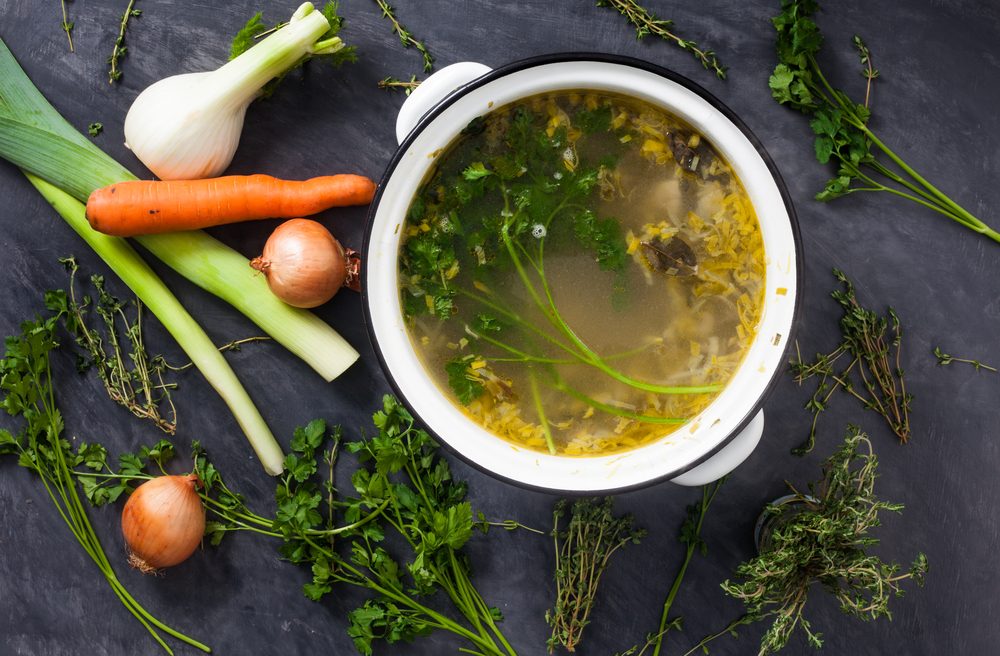
Curl up with chicken soup
Could it be that the combination of hot liquid, vegetables, lean chicken, onion, and sometimes garlic creates the magical power of chicken soup? After all, the recipe seems to include just about all the recommended foods to boost the immune system and help stop an incoming cold in its tracks. A now-famous study has even backed up the real power in this potion. “Chicken soup can be very soothing to cold symptoms, as the hot fluid can open nasal passages and decrease mucous while also providing a boost of antioxidants and protein,” Palinski-Wade says.

Skip the sugar
Added sugar isn’t good for your body in general, and it’s best to lay off the sweets if you want to keep your immune system healthy. “A diet very high in added sugar may increase inflammation in the body, and as inflammation rises, so do stress hormones, which can begin to weaken the immune system,” Palinski-Wade says. “Aim for less than 10 per cent of total calories coming from added sugars each day.”
Find out more ways sugar is making you sick.

Avoid unhealthy food
A poor diet full of processed foods isn’t going to give your body the nutrition it needs to keep in peak condition—plus, it takes up space on your plate that would otherwise be filled with healthy, cold-fighting foods. “Although there aren’t specific foods that will increase your risk of catching a cold, eating a diet based on whole, unprocessed foods packed full of antioxidants, such as fresh fruits and vegetables, can protect you,” Palinski-Wade says.
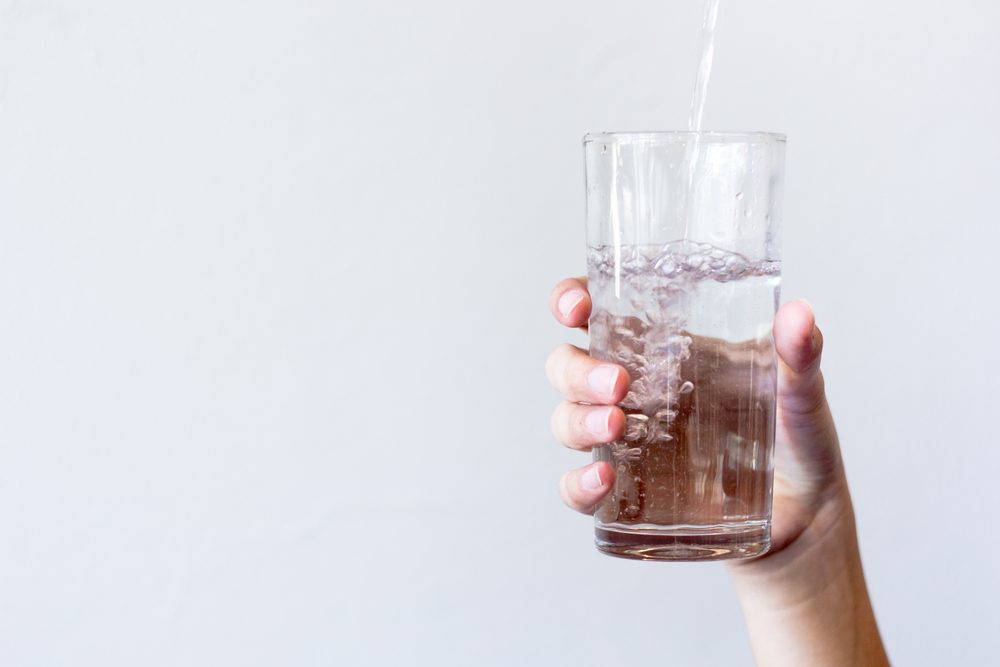
Stay hydrated
Dr. Ahn says that drinking enough liquid, whether hot or cold, is another good way to keep mucous membranes moist. In addition, “staying well hydrated can be a great way to help flush toxins from the body,” Palinski-Wade says. Above all, you want to prevent dehydration, which can weaken your body’s defenses. You don’t have to aim for a certain amount; just drink enough so that your pee is clear or at least pale yellow.

But avoid the water fountain
Plan ahead and have your own water bottle to prevent having to use a potentially germy public water fountain to stay hydrated. If they are cleaned frequently, “drinking fountains with clean water are safe to drink from,” says Jennifer Lighter, MD, a pediatric infectious disease specialist at Hassenfeld Children’s Hospital at NYU Langone. But according to one study, school water fountains had more germs on them than toilet seats, indicating that regular cleaning may not be happening. “Transmissions of germs may occur due to contamination of equipment on frequently touched surfaces,” Dr. Lighter says.

Wash your water bottle
Although carrying your own water bottle is advised to prevent the spread of germs, not cleaning it will defeat the purpose. “If you have a personal water bottle, make sure to clean it frequently, as studies have shown that they can be teeming with pathogens after several uses,” says Dr. Ahn. Also, avoid touching your hands to the spout of the water bottle to prevent cold germs on your hands from spreading to your bottle and then into your mouth.

Label your glass
It can be tempting to take a swig from your friend’s water bottle if you’re thirsty, or try that tasty drink she ordered, but don’t do it. It’s not just the saliva you have to worry about. “One can certainly pass the cold virus to others via sharing glasses and utensils,” Dr. Ahn says. “Upper respiratory viruses are spread via respiratory secretions and mucous, not necessarily saliva; but if a person is coughing excessively, some of these secretions can end up in saliva and cause infection to others if exposed.” Gross! “The smart thing would be avoid sharing drink containers and utensils whenever possible,” he says. “Labelling them would definitely help.” Set out a marker next to disposable cups at parties, or invest in fun wine charms for wine glasses. You can even use washable glass markers for regular glassware.
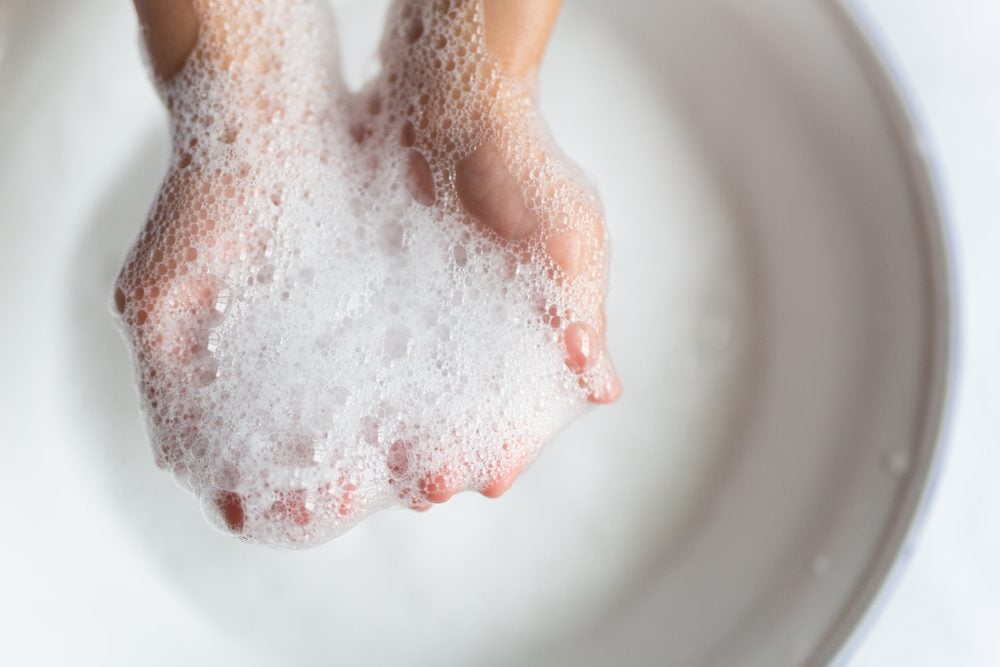
Teach your kids healthy habits
As any parent knows, kids are germ magnets, because they touch everything and are even more likely to touch their face than adults. Plus, their immune systems are still developing, so they have less resistance to colds. Put them in close quarters with other kids in school or daycare and it’s no wonder Johns Hopkins Medicine reports that children have six to eight colds a year—colds that they then bring home to infect you with. The best way to reduce that number? Teach them the same habits you use yourself. “Healthy habits would include washing hands with soap and water or an alcohol-based sanitizer when entering school or home, [before eating], and after going to the bathroom,” Dr. Lighter says. “Additionally, when coughing or sneezing, doing it either in a tissue or the inside of the elbow.” Make this fun for kids by calling it the “Dracula cough,” as you look like you’re raising an imaginary cape over your face like Dracula.
Read more doctor-approved tricks for helping kids avoid getting sick.

Keep germs from coming home from school
Give your kids all their own school supplies so they don’t have to share, and remind them not to share drinks, snacks, earbuds, or lip balm either. You can also provide your child’s classroom with cold-prevention supplies such as tissues, cleaning wipes, and hand sanitizer. Avoid any cold-causing germs your kids did pick up from school from entering your home—and infecting you—by starting a “decontamination” routine the second they walk in the door. “The most important step would be for children to wash their hands when entering the home,” Dr. Lighter says. Also, clean out their backpacks and wipe them down periodically.
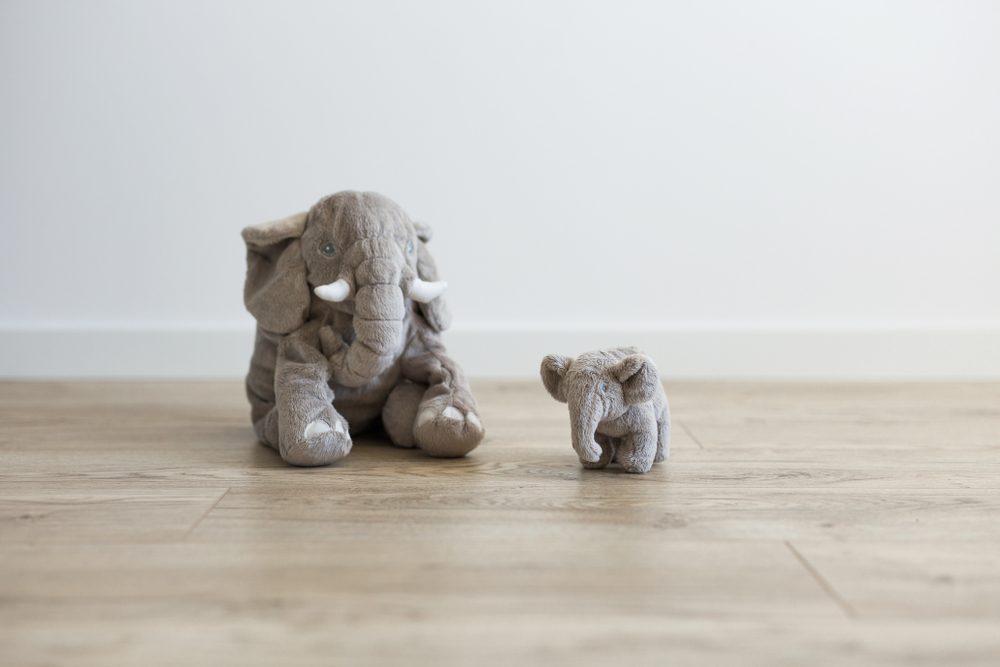
Wash toys
It’s not just your own kids you have to worry about: Anytime one of your kid’s friends comes over, they could be bringing germs with them that could then spread to you and your family. Wash toys after hosting playdates. But if they’re only used by your own child, don’t go nuts. “The frequency of cleaning toys depends on how frequently they are used and by how many people,” Dr. Lighter says. “As an infectious diseases physician, I don’t think my own children’s toys have ever been washed, as they are predominantly only used by my children. In my hospital, however, it is expected and audited that each toy played with gets cleaned after every use.” Likewise, if your child has played with another child’s toys (or worse, the toys in the doctor’s office waiting room), make sure they wash their hands afterward.

But let your kids build immunity
As much as we want our kids to keep their germs far away from us, it’s actually beneficial for them to not be too much of a clean freak. “Young children usually get a mild virus every three to four weeks, and that is OK,” Dr. Lighter says. “Germs help train the immune system of young children.” If you allow your kids to build their immune response, they will likely get fewer colds, which means you will, too.
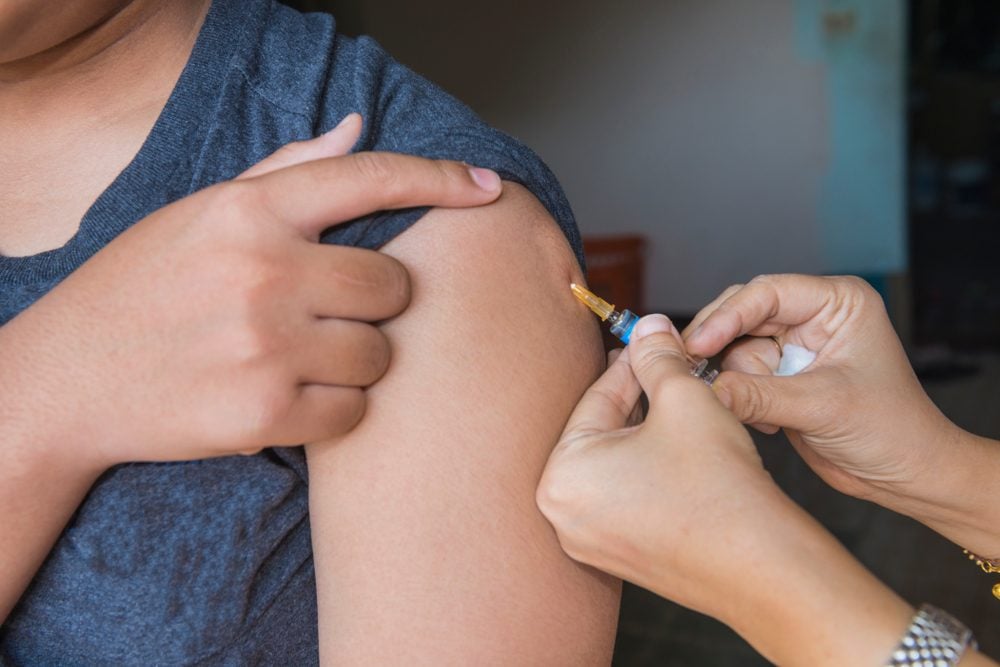
Get vaccinated
Although there is not yet a vaccine against the common cold, there is an immunization to protect against its cold-weather companion, the flu. Each year scientists create vaccines for the strains they think will be most common, so they’re not 100 per cent—but they’re your best shot. “It is extremely important to protect oneself and all children against dangerous germs with vaccinations,” Dr. Lighter says. As well as keeping up to date with your child’s regular vaccine schedule, the CDC advises everyone over six months to get a flu shot by the end of October.
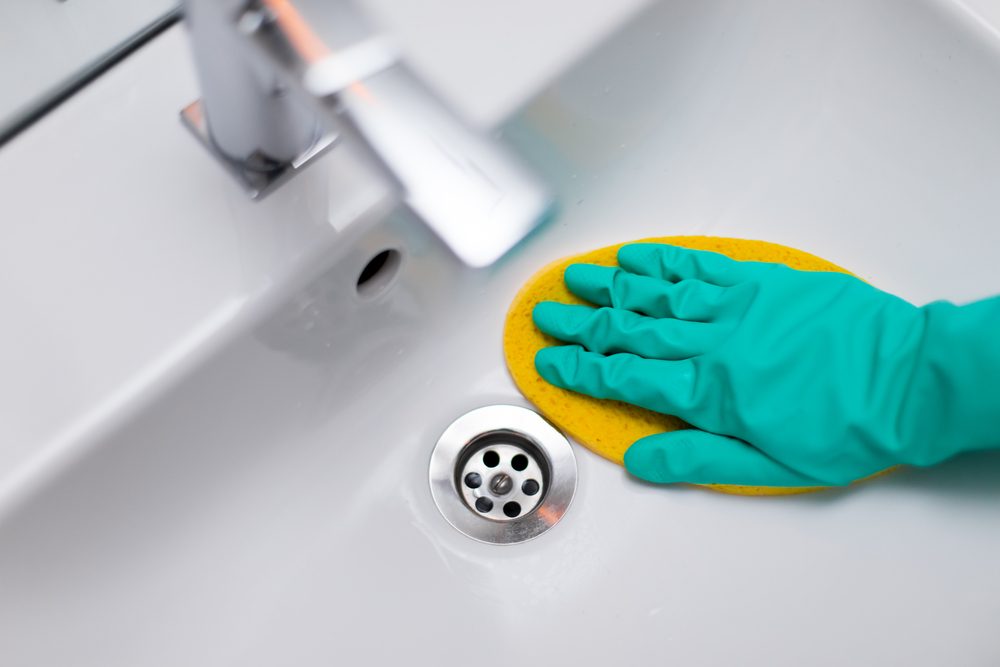
Wipe down your home and office
OK, we just said not to go too crazy with the cleaning, but you still probably should give a quick wipe-down to common surfaces in your home, classroom, or office on a regular basis, recommends the CDC. “Any surface which is frequently touched should be cleaned regularly to prevent the build-up of germs,” Dr. Lighter says. Cleaning doorknobs, light switches, handles, and anything that’s touched regularly by multiple people can help keep germs at bay.
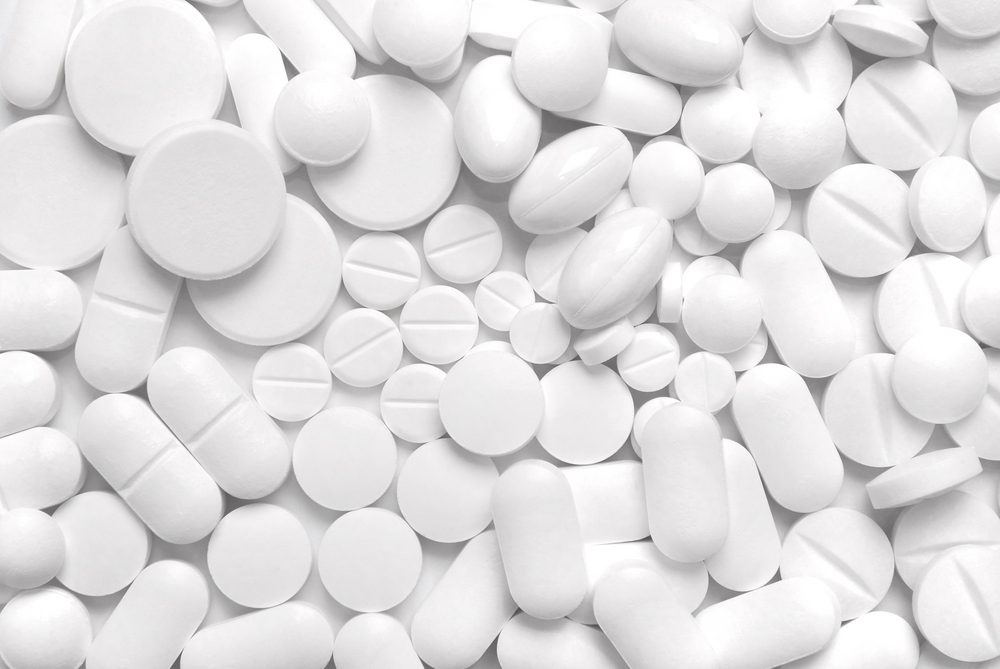
Pop some zinc
Don’t rely solely on herbal medicine or vitamins to keep you healthy, as research isn’t super-solid. But, one you could try (with your doctor’s OK) is zinc, which plays a role in immune function, according to the NIH. “Zinc may help to reduce the duration of the cold virus—one study found zinc supplementation at the onset of a cold reduced the duration of cold symptoms,” Palinski-Wade says. “In the study, 70 per cent of those taking zinc recovered from their cold within five days, whereas only 27 per cent of the placebo participants recovered in the same time frame.”
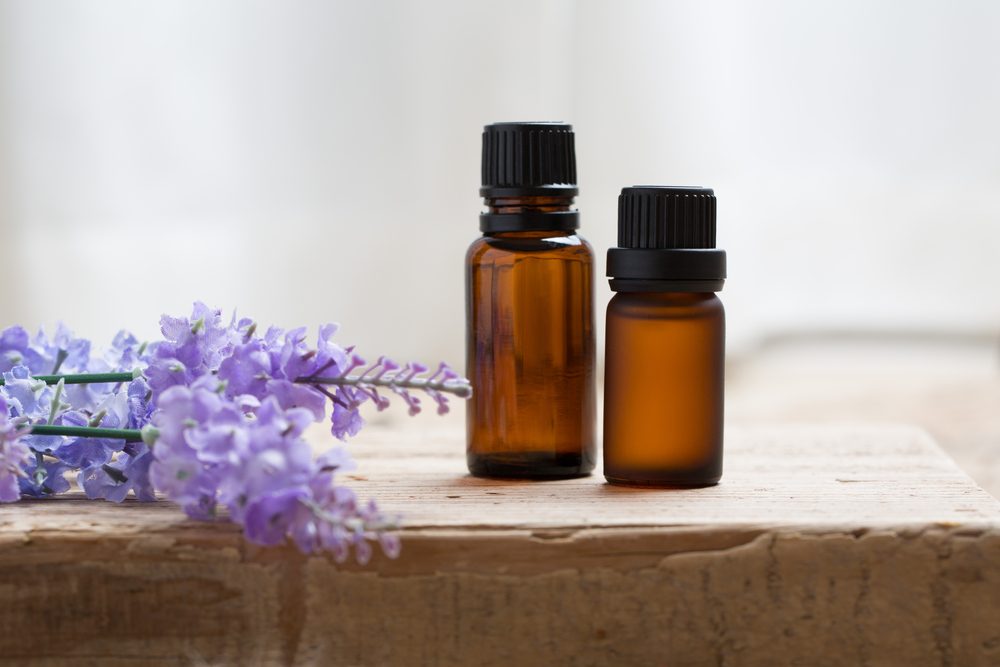
Try essential oils
Although scientific research is still emerging on these natural remedies, diffusing essential oils might actually help ward off sickness—plus they make the house smell nice. “There is limited research on the efficacy of essential oils in preventing or treating the common cold; in general, they appear to be safe and anecdotally can help boost the immune system and perhaps help prevent developing a cold,” Dr. Ahn says. “For example, some essential oils like eucalyptus oil and tea tree oil have some natural anti-viral properties, and others like peppermint oil can be commonly used to help relieve congestion.” But, “if there is any question on safety, I would recommend asking your physician first if safe to use an oil, especially for people with underlying medical problems or ear, nose, or throat issues,” Dr. Ahn says. In addition, he notes that essential oils aren’t regulated by the FDA, and there are no standards for dosing or concentration; but you can check out the National Association for Holistic Aromatherapy for tips.

Ease your stress
You know that “rundown” feeling you get when you’re stressed out? It can actually make you sick, according to research. “Anything that stresses the body either physically or emotionally can weaken the immune system, making you more susceptible to infection,” Dr. Ahn says. “The body’s response to constant stress decreases its ability to produce infection-fighting cells, which cumulatively can increase the likelihood of catching a simple cold, or in some cases even more serious infection.”

Stay positive
Looking on the bright side of life can actually help ward off illness, according to research. One study from Carnegie Mellon found that those with a “positive emotional style” (energetic, happy, and relaxed) were less likely catch cold and had fewer symptoms than those with a “negative emotional style” (depressed, nervous, or angry). “Having a positive outlook on things can play a strong role in preventing illness—although I wouldn’t use this as the only defensive measure,” Dr. Ahn says. “Plenty of rest, a healthy lifestyle, and aggressive hydration are still very important.”
Find out how to become a more thankful person!

See friends
One way to lower your stress level is to get together with friends on a regular basis since humans are social creatures. Research has found that socialization can help keep you healthy in general—and specifically has shown it can prevent the common cold. “Stress-relieving activities like getting together with friends can help as well [as more traditional methods of cold prevention],” Dr. Ahn says.

Hug it out
You’d think close contact would increase the likelihood of colds spreading, but a recent study found the more people hugged others, the less chance they had of getting sick. “We know that people experiencing ongoing conflicts with others are less able to fight off cold viruses,” study author Sheldon Cohen, PhD, said in a press release. This could be because, as mentioned above, people who have strong relationships tend to get sick less—plus, there could be a benefit in the actual physical contact.
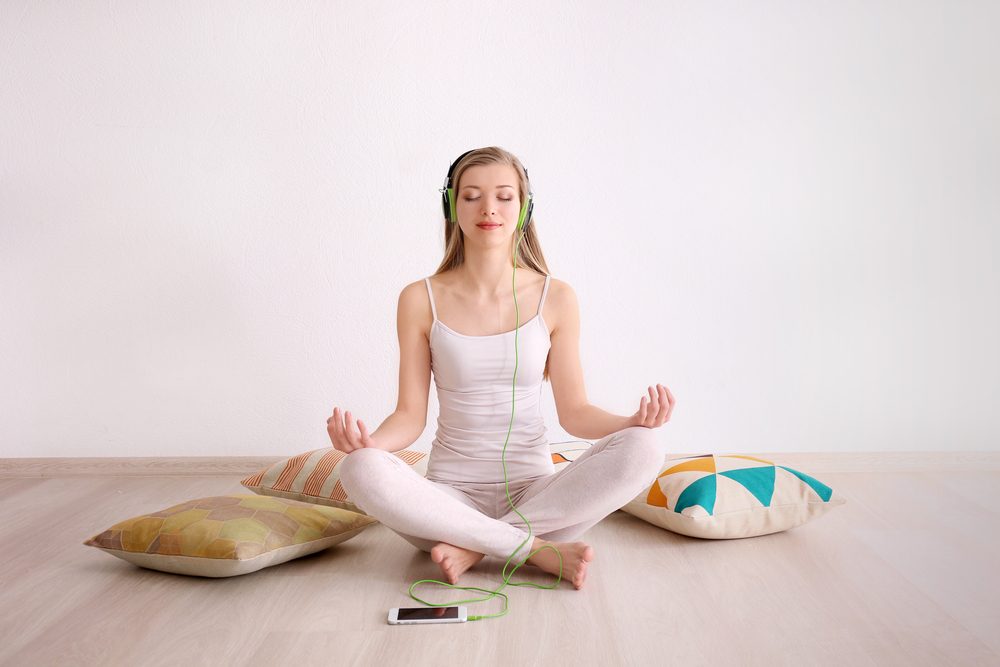
Meditate
Dr. Ahn also advocates meditation and relaxation techniques as additional ways to reduce stress in order to help prevent colds. Research from the University of Wisconsin School of Medicine and Public Health backs up meditation’s usefulness not just in mental health but physical health, too. “The study found that those who participated in eight weeks of mindfulness meditation training… had lower rates of acute respiratory infections (ARI) compared to a control group,” study author Bruce Barrett, MD, PhD, said in a press release.

Quit smoking
As if you needed another reason to quit, smoking can make it more likely you’ll end up with a cold. “Smoking has been shown to weaken the immune system in multiple ways, such as damaging the body’s ability to naturally move germs away from the lungs and nose, as well as altering immune cells,” Dr. Zipkin says. It can also dry out your mucous membranes and make them more vulnerable to germs. But, “the negative effects on the body from smoking can be largely reversed by quitting,” he says.

Bug your boss
Not with a cold bug, but with gentle nudging to review your workplace’s sick policy. One survey found 62 per cent of American employees have shown up to work sick. Another found that only 16 per cent of workers used all of their sick time, with 32 per cent not using any at all. Paid sick time should be given to workers, and workplace culture should encourage employees to stay home or work from home when sick, or even asked to leave if they show up with visible signs of illness. This benefits the company too: It’s better to have one employee absent than several employees who caught her germs.